What Are CRM Platforms
What Are CRM Platforms Table of Contents
- What Are CRM Platforms
- What Is CRM
- What is Customer Relationship Management?
- Why Use A CRM?
- What Do People Mean When They Say CRM
- Why Is CRM Important
- How Different Business Function Benefit From CRM
- What Are The Benefits Of CRM
- Why Choose A Cloud-Based CRM System
- How Do Different Business Functions Benefit From Using CRM
- Sales Team Can Use CRM To Understand Their Sales Pipeline Better
- Advantages Of CRM
- What Are The Benefits Of Using A CRM Solution?
- Disadvantages Of CRM
- Why Choose A Cloud Based CRM System
- CRM As A Technology
- CRM As A Strategy
- Examples Of CRM
- Overview of What Are CRM Platforms
- Best Crm Solution by Rating
- Best Crm Solution by Price
- Best Crm Solution by Rated Features
- Check Your Crm Solution Offers Round The Clock Support
- Make Sure Your Crm Solution Offers The Features You Need
- Best Crm Software Solution Verdict
- Crm Software Frequently Asked Questions
- View all of the top Crm Software Solutions
- Crm Alternatives
- Crm VS Side by Side Comparisons

What Are CRM Platforms
What Is CRM
What is Customer Relationship Management?
This is a complex yet essential management technique that deals with data flow from one customer to another and helps in decision-making. Customer relationship management is also known as CRM.
Customer relationship management provides the key aspects of how companies can better serve their clients by observing their interactions. It is to understand the customers' thoughts, opinions, needs, and feedback, which would help businesses provide more personalised and relevant responses to their clients. It would also help businesses to effectively measure the efficacy of their services, products, etc., through the data provided about their customers.
There are many benefits of utilising CRM software like increasing sales, decreasing churn, enabling better service, getting closer to customers and reducing costs. In this system, an organisation gathers customer data and compares it to strategic goals and objectives. It is also known as data mining. By using this data, businesses can gain insights into what customers want. CRM software provides businesses with the key aspects to best serve their clients through the collected data by providing customised solutions.
Why Use A CRM?
If you are in the market for a CRM software system, there are a few essential things that you need to know about how they work and what they can do for you. Customer relationship management (CRM) is an internet-based method by which a company or organisation administers its various interactions with clients, usually utilising big data analytics to study large volumes of unstructured information about prospective clients. The data is gathered through multiple sources, from web surveys to the use of existing customer relationship management applications and, of course, the traditional customer relationship management channels: phone, face-to-face and mail. The software's modules process information, and this is how CRM software works. In this article, we will discuss the modules of software, how they interact and which one or a collection of them could be an excellent fit for your company.
A CRM software system is the customer relationship management application or CRM. It is a web-based interface for your company's contacts and interactions with customers. This application would be the primary mode of communication between your salespeople and potential customers in many cases. Still, some CRM systems also come with an off-site backend server so that this interface can also be hosted off-site. Regardless of whether your company uses on-premise or hosted CRM software, your CRM systems must have specific required components.
Now that we have looked at the basics of how CRM software works, let us look at the benefits of using one. One great benefit of having a CRM system is that your company's interactions with its customers are more efficient. This software's modules will allow your salespeople to understand your customers' needs and wants better, enabling them to better position themselves for successful interactions. Another important benefit of having a CRM system is that you can use it to monitor all of your company's interactions with your customers, including sales, customer service, and more. You can also use your CRM software to ensure that your employees are trained in using customer services and are familiar with dealing with customers to provide them with only the highest quality of product or service possible.
What Do People Mean When They Say CRM
The term CRM is fast becoming one of the most commonly used buzzwords in today's business world. Many businesses are beginning to realise the benefits that a good CRM program can bring them - both in profit and efficiency. However, what exactly does this term mean? How can a company go about adopting or implementing a CRM system?
Well, customer relationship management is simply managing various types of interactions between customers and companies. It includes interactions between customers, sales representatives, and marketing personnel. CRM is used to manage those types of interactions but also helps to analyse them to ensure that the best kind of communication is being conducted within a given business. It, in turn, ensures that the best kinds of products or services are offered to customers - whether they are purchasing directly from the company or relying on a third-party reseller.
Several different factors are taken into consideration when implementing a customer relationship management system. One such factor is the need for speed - a good CRM program can process as many contacts and data as possible in a brief period. Therefore, businesses need to find a company or entity that is well-experienced in providing these programs. The best way to identify such a company is by asking among those who have experience with CRM in general. Also, it is essential to bear in mind that some types of relationship management software may be offered free of charge, but they may lack certain features that will make their use more inefficient than they are worth.
To hear someone talk about customer relationship management, commonly abbreviated as CRM, may not give you much of a clue about what it is. Delving a little deeper into the subject, you will find that a CRM is just one component of a successful marketing strategy that a business employs to increase customer satisfaction and loyalty. A CRM could be a form of relationship management or a more comprehensive approach to customer service. An excellent example of a CRM system is Toyota's Ingersoll Rand MasterCard. This company has been around for several decades and has developed several systems designed to help businesses with their customer interactions. Each one of these products has a different focus, but there are common elements in each one that can be found in many CRM applications today.
A CRM application works by organising customer information and analysing it to provide businesses with helpful information about why a particular customer is buying from them. For example, you can use customer lifetime data to analyse whether a particular customer is a repeat customer or whether they are buying something that they did not originally need in the first place. Other common elements include customer satisfaction and loyalty data, and financial data analysis. These three areas all combine to provide insight into how to serve customers on an individual level effectively. When you have a clear understanding of why a customer is dissatisfied or unhappy with your company, you have the knowledge to take steps to the right the problem and turn things around.
So what do people mean when they say CRM? It simply represents a business's attempt to improve customer relations, using any method that helps gather data and present findings in a way that is helpful to a business. While many forms of CRM are available, the Ingersoll Rand MasterCard is one of the most popular. It combines traditional methods of managing customer relations with online tools that allow a business to get real-time insight into how customers feel about a product or service, helping to change negative behaviour and increase customer satisfaction proactively.
Why Is CRM Important
Customer Relationship Management (CRM) refers to the entire set of strategies, tools, techniques, and technology used by businesses for gaining, retaining, and developing new customers. It involves managing customer information, including sales, purchasing, support, marketing, and customer service. The success of any business depends on how well it maintains a good relationship with its customers. Customer relationship management (CRM) software helps monitor, organise, analyse, and improve customer relationships by providing various marketing, customer service, and product planning and development solutions.
One of the best ways to improve customer satisfaction is to use an on-premise CRM. An on-premise CRM, also known as an enterprise resource planning (ERP) application, is designed for businesses with many customers rather than only a few. Enterprise resource planning applications include business-specific modules such as human resources, retail management, accounting, finance, and marketing. These CRM packages are designed to work seamlessly with each other and the CRM software itself to provide businesses with the best possible results. In most cases, CRM packages can also be incorporated with on-premise Microsoft Office applications, such as Excel, Outlook, and Word.
Many companies offer a CRM package, which is not compatible with on-premise Microsoft applications like Excel or Outlook. These companies may offer a CRM system that includes Microsoft Office applications and special add-on modules such as Microsoft Dynamics GP, Salesforce automation, etc. Some companies provide CRM software designed specifically for the small business market, while others may specialise in providing ERP solutions only for medium-sized and large businesses. Regardless of whether your company needs a standard Microsoft Office suite of applications or a more specialised CRM package, you must have a good CRM software solution. When choosing a CRM solution, it is a good idea to talk with your computer consultant about what features you would like your CRM software to have, as well as how customisable the solution would be for your particular business situation.
How Different Business Function Benefit From CRM
CRM is a tool used by a sales team to enhance customer relationships. It enables a company to measure the success of their salespeople by tracking sales, identifying customer preferences, defining business goals, and analysing the activities of the sales team and their interactions with customers. These activities include the number of appointments made, the number of new sales, and repeated sales. CRM is very effective in analysing this data and getting detailed reports. Sales managers can use this information to improve their customer service, increase their sales performance, and even increase their profitability.
As mentioned above, CRM functions help a company to determine their sales performance, as well as their customer service performance. By analysing data obtained through CRM, a sales manager can understand why certain sales perform poorly and why other sales are doing well. Through CRM, the sales team will learn how to better cater to customer needs and maximise their sales performance.
How do different business functions benefit from CRM? When you implement CRM, you will not only be able to obtain detailed reports on your sales and customer data; you will also be able to get insights on how you can improve your sales process. Business managers can apply the findings on customer behaviour and their interaction with customers to the current practices within the organisation and improve their own processes. A good CRM solution can make a business more profitable and more efficient, allowing the company to serve more customers with greater accuracy and quality services. Implementing a CRM solution will help a business to become more profitable and also less tedious, allowing the company to run smoothly.
What Are The Benefits Of CRM
This management has been around since the 1950s and was first implemented to improve customer service and satisfaction. If you want to be sure that your company is running as efficiently and effectively as possible, you should be implementing CRM and make the best use of its many features and functions.
Many businesses mistake treating CRM like an eCommerce website, which is a complete marketing failure. CRM is a complete business solution and not just a website or tool. It's a great way to increase your sales because you will monitor every aspect of your business from your customers' perspectives. You can also use this data to optimise your products or services and turn them into gold. Another reason why you should be implementing CRM is that you will learn a lot about your customers and understand what drives them to buy your products or hire your services.
What are the benefits of customer relationship management? Apart from keeping track of all of your contacts and your clients, you will also be able to use it to foster strong employee relations, build loyalty and trust, and get better rankings in the search engine results. All of these things lead to more revenue and more profit. It will also help you save a lot of money, which is the primary goal of any business owner. So before you scoff at the idea of implementing such a system, keep these benefits of customer relationship management in mind.
Why Choose A Cloud-Based CRM System
The main reason this is becoming more popular is that businesses use the cloud to save on costs. By leasing out space in a server, the business can easily monitor all aspects of their companies without owning the hardware. For example, they will see who had visited their website, when they last logged in and how many times they opened an account or logged out. Without needing to build and manage servers, the management of the customer data becomes much more accessible. Companies like this are preferred over more traditional systems because there are no hardware worries. No cables, no servers, no wires: it's just a matter of hooking up the devices to a data network.
With most businesses moving towards cloud-based solutions, there is also a need for a unified infrastructure. It means that a company won't have to rely on one server to host everything. Instead, they will be able to maintain all their websites on different service providers' cloud servers. Since each of them has different plans, the client can choose what best suits his needs. It also gives them access to the latest upgrades that their company has to offer. They don't have to worry about compatibility or the system's capacity because the information will be stored in one place.
As well as being highly scalable, cloud-based CRM gives a business the freedom to change its applications and management at any given time. Because it's hosted off-site, clients can gain access to a variety of tools and features. For example, some may require customised reporting or search engine optimisation tools. If they're looking for a fully-featured customer relationship management tool, they will be happy to know that it's possible to find it online. As more companies switch to cloud-based solutions, these tools and features become more readily available to companies and individuals.
How Do Different Business Functions Benefit From Using CRM
Today, more companies turn to CRM software to replace their old-fashioned inventory control systems, purchasing, customer support and more. But do different business functions benefit from using a CRM? The answer is not that simple; there are many different functions in different organisations that everyone would benefit from using a CRM. It is not a problem because a good CRM system can handle all of these functions. And today's CRM software can handle them all.
Consider the example of a company that sells tyres, they have a huge fleet of trucks, and their maintenance costs consume a huge chunk of profits. So imagine if those profits were cut in half or even more. What then? The company would go out of business. Well, not exactly. Since they could use the CRM software to track all of their expenses, including labour costs for the drivers, they can find out how much money they are losing per truck and offset some of the labour costs in their accounting department. They can also use this information to see which employees earn the most profit and maybe remove some of the weaker employees who cost them the most revenue.
Or consider the sales department of a company. They deal with so many potential customers daily. Each customer can usually give you a different reaction. It can be challenging to interpret, so most salespeople like using a CRM. With the CRM software, they can quickly and easily analyse the data and see what kind of actions might be helpful to change for a better outcome with a new customer. Not only do they have all the data on their sales, but they also have all the data on their potential customers. It makes a great deal of sense when you think about it.
Sales Team Can Use CRM To Understand Their Sales Pipeline Better
CRM is a powerful business application that enables you to gain a comprehensive view of the activities and progress of your salespeople at any point in time. It helps better manage resources and data, which can help your sales team work smarter and not harder. CRM helps sales teams understand customer preferences and motivations to sell the products or services and close more sales effectively. It enables sales teams to adapt to the changes in the market to improve sales efficiency.
Sales managers need to make sure that the information contained in CRM has been standardised across all the sales functions within the organisation. It ensures that each sales representative has access to the same detailed information at any point in time. Sales teams can use CRM to better understand their sales pipeline by setting up relationships with resellers or suppliers who may provide the sales lead that the sales team requires. Sales managers can also use CRM to measure the progress of their sales representatives by setting performance goals and objectives and, based on this, determine the role and responsibilities of the sales representative in the organisation.
Sales managers can also use CRM to track the sales team's progress by setting performance goals and objectives. Based on this, determine the role and responsibilities of the sales team in the company's overall success. CRM can help sales managers align the sales team's performance with the company's success. Sales teams need to understand that sales management is more than just punching numbers. The sales manager's role in the company's success is about strategy and tactics as it is about raw numbers. Therefore, sales managers need to be strategic and creative in their decision making to ensure that they achieve their goals in the shortest possible time.
Advantages Of CRM
In a global market where every business functions with multiple functions and departments, customer relationship management or CRM is vital for each business to thrive. A customer relationship management system includes four key functional areas: customer service, financial services, internal business processes and marketing or sales. A customer relationship management system not only helps businesses in their day to day functioning, but it also helps them in their planning and organisation. The benefits of CRM also include the following.
The first and foremost benefit of cloud CRM is that it helps in consolidating various business processes. The other key benefits of a cloud-based CRM system are that they help improve customer satisfaction, higher operational efficiency and greater profitability. CRM solutions also help in creating customer loyalty by delivering value-added services and tools to customers. Compared to on-premise CRM solutions, a cloud-based CRM solution offers several benefits, such as the following.
What Are The Benefits Of Using A CRM Solution?
This technology has become an essential part of any business and organisation. It helps save money and provides many other benefits such as enhanced customer satisfaction, increased profitability, better employee engagement, reduced customer bounce backs, and many more. A sound CRM system helps gain maximum advantage over the competition by assisting businesses to achieve their target goals in a more time-efficient manner. So choose the right CRM system for your organisation today.
The benefits of a company with a CRM strategy far outweigh the negatives. In particular, it allows for the real-time integration of client data and is the cornerstone for deeper customer insight. It also speeds up the business sale process. It reduces time-cost, increasing staff productivity across the board.
Additionally, it allows for targeted communications, eliminating the need for mass mailing or other mass-marketing methods. Additionally, it does away with the outdated practice of 'one-to-one marketing. With the proper care strategies, a company can focus more on building relationships with customers. As well as strengthening ties with existing customers and prospective ones, it creates stronger relations with potential customers and helps bring in new ones as well.
Advantages of CRM go far beyond strengthening customer relationships and increasing business profits. The benefits extend way beyond the initial implementation of the software and include several areas. Combining the CRM systems with a solid marketing plan focused on attracting new customers increases its revenue. CRM also makes it much easier to attract and keep new customers once they are acquired. CRM's powerful features make it easier than ever for a company to dominate its industry and its market space.
Disadvantages Of CRM
The disadvantages of CRM management are not hard to come by despite - or instead because of - the numerous benefits derived from such management systems. A significant disadvantage, which tends to come from a lack of proper research on the needs and wants of the users of the CRM, is its restricted functionality. Many users are unhappy with the limited functions of CRM management systems, which limits their ability to handle specific business tasks. There are also other limitations, such as the inability to integrate the data of different departments into a common database. Another disadvantage is the difficulty in customisation of the application to fit the business model of each company.
Another limitation of a CRM system is that it can easily become a source of profit for those who have developed it. The development of a good CRM system requires a large investment, which many companies cannot make, leading to poor utilisation of their CRM implementation. Since most CRM products require extensive training and support, many companies are forced to outsource the CRM implementation process. It means that users of the CRM system, especially smaller businesses, lose out on the valuable services offered by the product, implying lower profits for the company.
Despite the disadvantages of the customer relationship management (CRM) software, several benefits are derived from this system. Many companies use CRM systems to monitor customer service, ensure that they are provided with the best customer service possible, and improve customer satisfaction. With the development of good-quality CRM systems, companies have reduced their expenses due to the reduced need for in-house staff to handle customer queries and concerns. It has increased the efficiency that a CRM process can bring to any company's overall business performance. However, while a CRM system may prove to be a special tool, organisations need to consider the disadvantages of CRM before purchasing one.
Why Choose A Cloud Based CRM System
Cloud computing is a concept that is becoming increasingly popular in the business world, but what exactly does it mean. In a nutshell, this is a way to centralise your company's data and applications on a centralised server without the need for you to buy and run any hardware or software. It is great to run a small business because it is incredibly cheap to set up and will usually only take up a few dollars a month to maintain. However, suppose you are a large business with multiple outlets or departments. In that case, you may find that buying the necessary hardware and software to keep your systems running can be very expensive.
Another reason to choose CRM over software solutions is that the interface for the system is straightforward to use. Unlike software, you do not have to deal with complex controls and menus whenever you want to check information on a customer or manage your staff. With the right CRM system, you will have a simple 'home' page, which lets you see who is calling, what their name is, how many contacts they have in their contact list and how to contact them. You can then click on one of the options to upload their contact list into your system and view all the other details about the person. When you have finished uploading all your data, you can then log in to your CRM system and manage your customers and employees from there.
The final benefit to cloud-based CRM is that it is flexible. It means that you can expand and contract your business in ways that would be impossible with software. For example, you could quickly expand your customer list and hire new staff when new orders come through your website or department. Similarly, you could hire new sales staff or employees when you need them but never want to recruit and train them in the traditional workplace. Instead, you can delegate these responsibilities to a remote employee who will carry them out on your behalf.
CRM As A Technology
As one of the critical components of a successful company, CRM has emerged as a central theme in strategic decision-making for many companies. CRM is an acronym for Customer Relationship Management. It is an information technology product, usually on the cloud, enabling organisations to manage customer relationships via a web-based interface. It includes not only direct management of customer information but also provides additional capabilities such as risk and social media management.
CRM as Technology: There are various technologies related to CRM, customer relationship software (CRM), enterprise resource planning, and software as a service. But this is not the entire story. The key to a successful CRM strategy is understanding your organisation's needs and then using CRM technologies to make informed decisions. For instance, if your business process is centred around purchasing, you may want to look into purchasing management applications, allowing you to quickly and easily identify, analyse, and track purchases. A CRM program should allow your team to collaborate across departments by providing instant access to data and dashboards so that all departments can make informed decisions about their business.
So, what are CRM technologies, and how does CRM help your business? The main goal of a CRM system is to provide businesses with a streamlined method of managing customer relationships by providing users with a unified approach to information and interactions with customers and potential customers. It provides businesses with tools that allow customers to interact with customers, analyse, share, and allow these interactions to be stored in a secure, accessible, and up-to-date database. It also allows business managers to create reports easily or customise dashboards for the various aspects of a business. CRM is an important part of any well-run company, whether you are just beginning to explore the possibilities or have been involved in the industry for years.
CRM As A Strategy
CRM isn't just a theory; it's a reality. It helps businesses improve their overall customer experience and achieve financial success. CRM automates everyday business functions such as customer inquiry handling, marketing analysis, and contact management. Businesses can use CRM to gain a competitive advantage, increase revenue, improve quality and decrease cost.
Businesses implement CRM by using existing IT infrastructure or acquiring and customising new CRM packages that support specific business needs. CRM packages usually include the following: CRM Application Manager, CRM application, Customer Account Management software, and front office CRM applications such as sales, customer service, and service desk automation. With these packages, businesses can handle the entire process of CRM from end to end. The key advantage of using CRM is that it reduces the cost of implementing it by decreasing the number of sales calls for a given set of information or eliminating the need to collect and manage customer data in the traditional manner.
For organisations that are not yet ready to adopt CRM, two alternatives are available. First, they could opt for a CRM package and deploy it themselves. Second, they could seek the assistance of third-party experts who can integrate the CRM into existing business procedures and architecture. While adopting CRM as a strategy is undoubtedly a step in the right direction, it is not enough to bring about significant change in business practices. A combination of comprehensive CRM measures and customer-focused engagement techniques is all that is required for the successful implementation of CRM.
Examples Of CRM
If you're wondering what you need to do to run an effective customer relationship management system, then this article will give you some great examples of CRM that will help you understand the role it plays in your organisation. Most of the time, CRM is considered a single solution. However, the reality is that it can be used in conjunction with other business processes and adapted to suit specific requirements and business models. An example of this is how companies that don't traditionally use CRM have used them successfully for supply chain management and customer support, giving them more control and better results.
Examples of common CRM activities include sales, marketing, technical and customer support, and operations, to name but a few. Examples of customer interactions include interactions with customers, feedback and reviews, enquiries, and purchases or referrals. Sales and marketing activities include tracking activity, lead generation, contact management, call-backs, and outbound marketing. In contrast, technical activities involve back-office tasks such as accounting, data maintenance and extraction, manufacturing support, planning and analysis.
The above example of CRM is just one of many, but it's a clear demonstration that many businesses use CRM in ways that can be adapted to their specific needs. There are clear examples of how CRM can improve customer retention, drive sales growth, increase productivity, improve profitability, reduce waste and customer dissatisfaction, to name but a few. But CRM isn't just about software and systems - it's also about how the information you collect from customer data feeds forms the foundation of all your work. If you want to ensure that your company's activities are aligned with your strategic objectives, then you need to focus on the fundamentals of CRM - the insight, analytics and knowledge that it delivers.
Scroll down to read our indepth CRM Platforms guide. What you should know, CRM Platforms features, price plans and support. Pros and Cons of CRM Platforms as a crm, everything is explained below.
Overview of What Are CRM Platforms
OfficeClip Contact Manager is a software company that specialises in crm software for small to enterprise level businesses.
OfficeClip Contact Manager is listed as the best crm software related to CRM Platforms. OfficeClip Contact Manager was founded in 2003 in Atlanta, GA and currently has over 9 employees registered on Linkedin.
Best CRM Solution By Rating
Get our stories delivered
From us to your inbox weekly.
 OfficeClip Contact Manager
OfficeClip Contact Manager
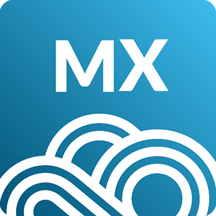 Manufacturing X Sales Platform
Manufacturing X Sales Platform
 Less Annoying CRM
Less Annoying CRM
 Relenta CRM
Relenta CRM
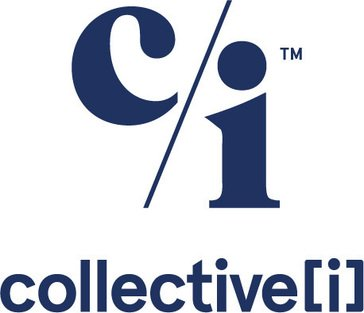 Collectivei
Collectivei
 GBS CRM
GBS CRM
 edge CRM
edge CRM
 CompanyHub CRM
CompanyHub CRM
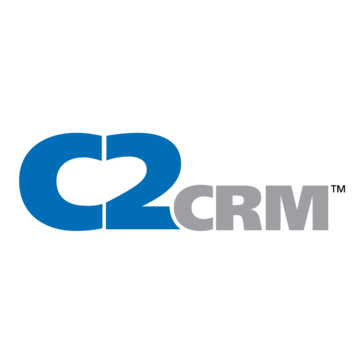 C2CRM
C2CRM
 Affinity Relationship Intelligence
Affinity Relationship Intelligence
 Kizen
Kizen
 Kapture CRM
Kapture CRM
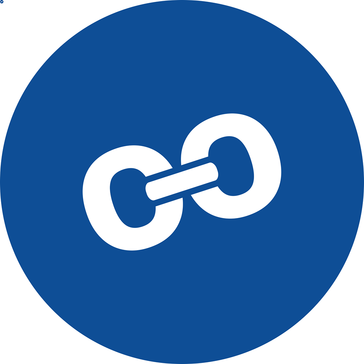 Toolyt SFA
Toolyt SFA
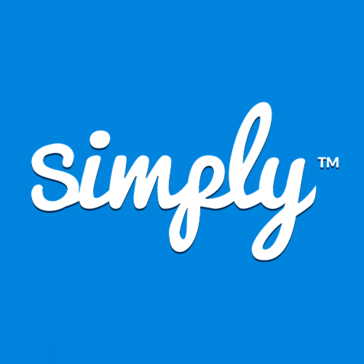 Simply CRM
Simply CRM
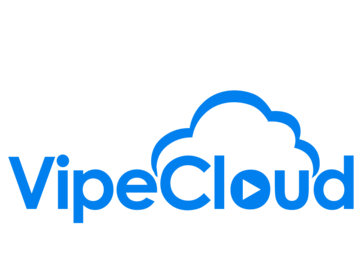 VipeCloud
VipeCloud
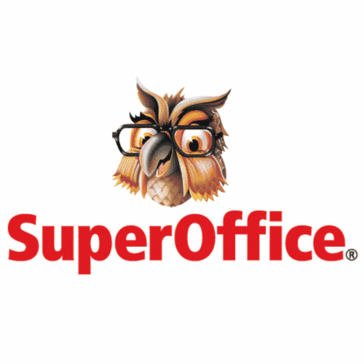 SuperOffice CRM
SuperOffice CRM
 zigihub
zigihub
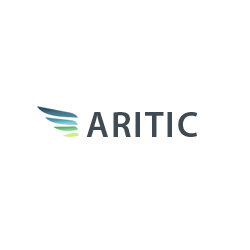 Aritic Sales CRM
Aritic Sales CRM
 GleanView
GleanView
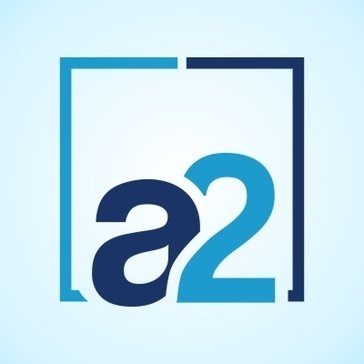 AddressTwo
AddressTwo
